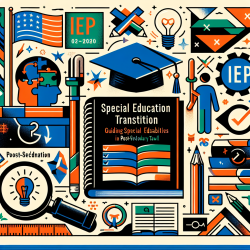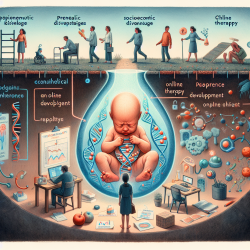Empowering Change: Transforming Reproductive Health Through Data-Driven Solutions
In the realm of reproductive health, particularly in low and middle-income countries (LMICs), gender-based violence (GBV) remains a significant barrier to women's autonomy and well-being. A recent study titled Protocol for a matched-pair cluster control trial of ARCHES (Addressing Reproductive Coercion in Health Settings) among women and girls seeking contraceptive services from community-based clinics in Nairobi, Kenya sheds light on a promising intervention model known as ARCHES. This model aims to address reproductive coercion (RC) and intimate partner violence (IPV) within health settings, ultimately improving contraceptive outcomes and empowering women and girls.
Understanding the ARCHES Model
ARCHES is a clinic-based intervention integrated into routine contraceptive counseling. It was initially developed and evaluated in the United States, demonstrating a reduction in RC and IPV among women and girls seeking reproductive health services. The model has been adapted to the Kenyan context to address the unique challenges faced by women and girls in Nairobi, Kenya.
Core Elements of ARCHES
- Enhanced Contraceptive Counseling: The intervention includes comprehensive education on contraceptive methods, focusing on those that can be used discreetly to mitigate interference from partners or family members.
- Opportunity for Disclosure: Patients are given the chance to disclose experiences of RC and IPV, with providers trained to offer supportive responses and referrals to local services.
- Educational Materials: A palm-sized booklet is provided to patients, offering information on RC, IPV, and local support services, empowering women to share resources within their communities.
Implications for Practitioners
For practitioners working in reproductive health, the ARCHES model offers a data-driven approach to addressing GBV and improving contraceptive outcomes. By integrating ARCHES into routine practice, practitioners can:
- Enhance patient-provider communication, fostering an environment where women feel safe to disclose sensitive information.
- Utilize educational materials to empower patients with knowledge and resources, promoting autonomy and informed decision-making.
- Contribute to a broader effort to reduce GBV and improve reproductive health outcomes in LMICs.
Encouraging Further Research
While the ARCHES model shows promise, ongoing research is essential to refine and expand its implementation. Practitioners are encouraged to engage in further research to explore the model's efficacy in diverse settings and populations. Collaborative efforts can drive innovation and improve the quality of reproductive health services globally.
To read the original research paper, please follow this link: Protocol for a matched-pair cluster control trial of ARCHES (Addressing Reproductive Coercion in Health Settings) among women and girls seeking contraceptive services from community-based clinics in Nairobi, Kenya.










